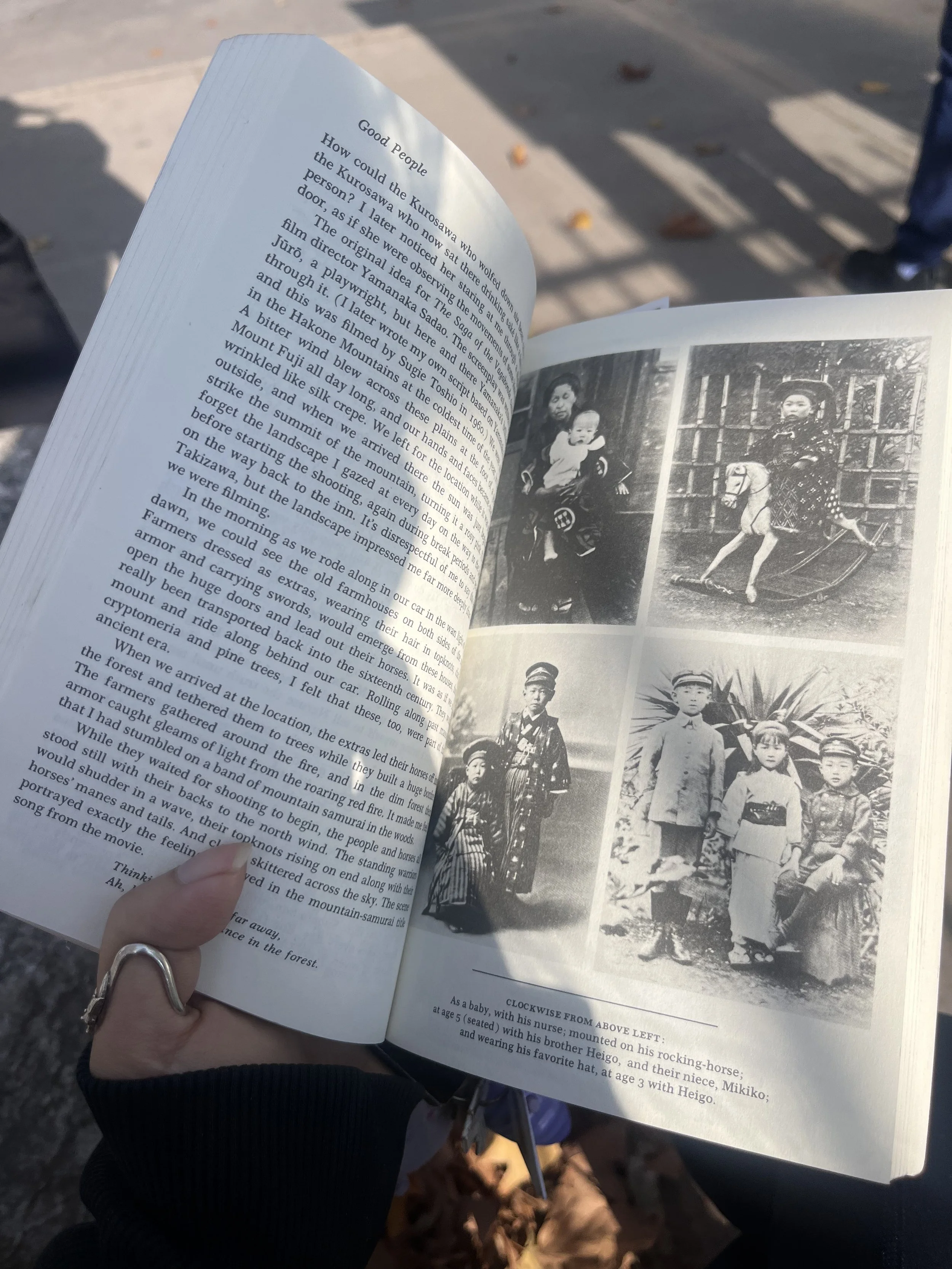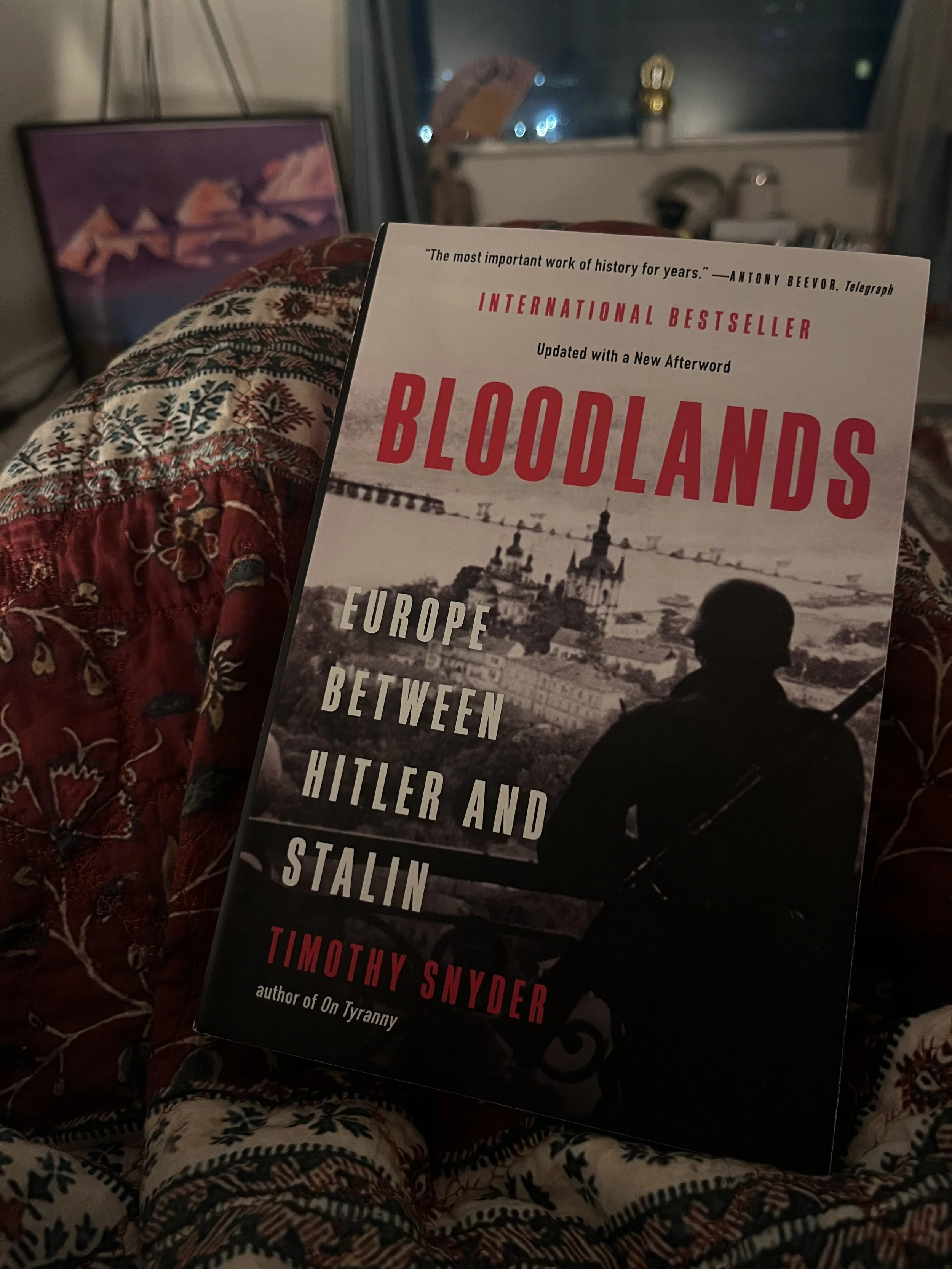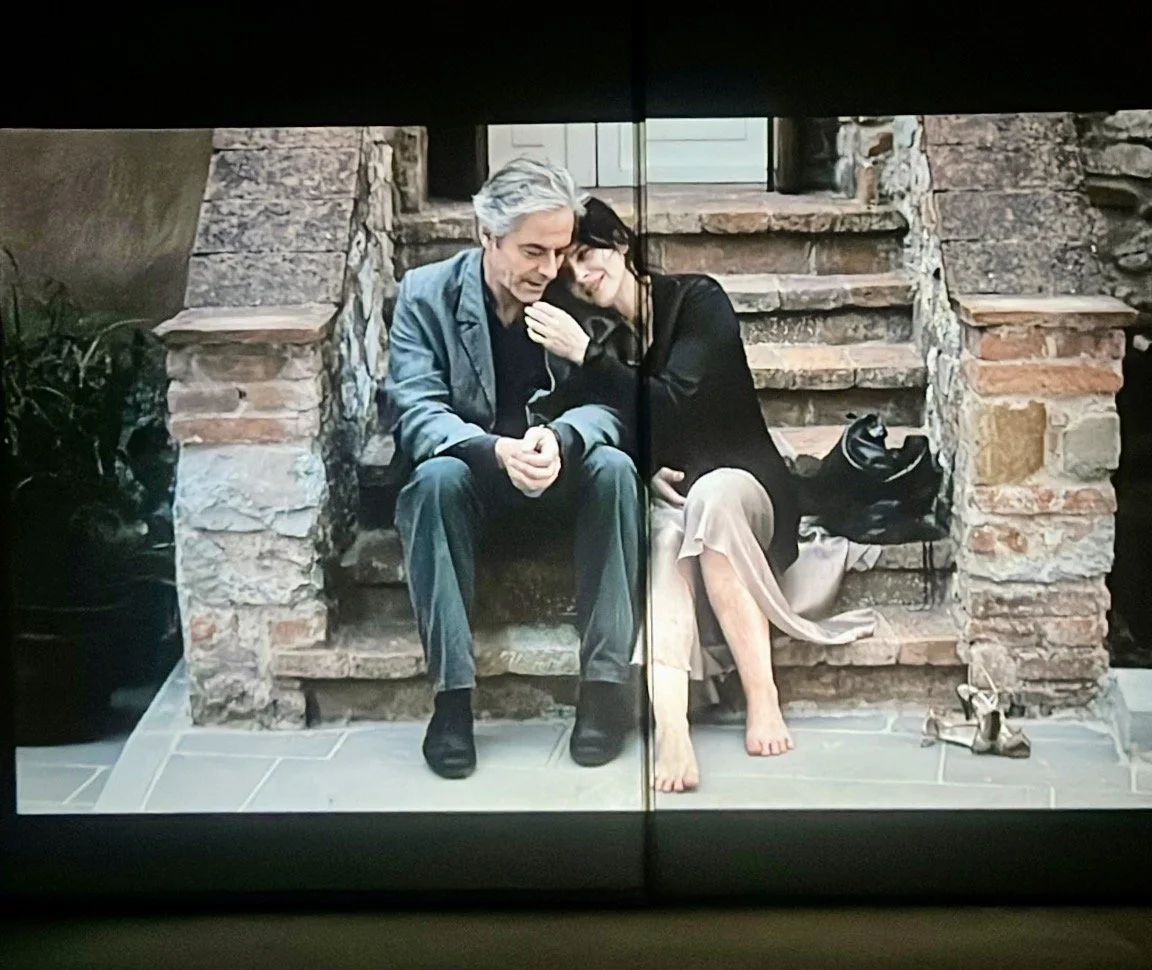where I’m at—cinema, books, et al.
In the last couple of days, I have been immersed in Akira Kurosawa’s autobiography titled, Something Like An Autobiography. I believe, it was written a few years after he directed Kagemusha, which was actually the very first Kurosawa film that I watched over a decade ago. Earlier this summer, I visited Varanasi with my family and went to Harmony The Bookshop at Assi Ghat and picked out two books that my father decided to gift to me. One of them is this, and the other one is Sartre’s War Diaries.
Reading this was a feeling of hiraeth because it transported me to my parents’ home where I was surrounded by the comfort of family and books. And while I was working my way through Kurosawa’s life in words, I ended up watching two more of his films, those being: Seven Samurai and Stray Dog.
The kind of personal perspective I was able to glean as I read the book and watched his films is an inimitable experience. It was almost as if I was able to “feel” the films as they were being made and Kurosawa’s vision itself.
To me, it has become unequivocal and undeniable that Kurosawa was unabashedly earnest, stoic, and a prolific screenwriter and film director who had great faith in his actors and never shied away from openly showing his gratitude to his mentors and the people who helped him realize his stories despite the repercussions of the World Wars and the American propaganda that the Japanese were so resistant towards.
It was only natural to me to download Kurosawa’s entire filmography and make plans to acquire a poster of Kagemusha (I am still saving up for this). By combining literature with visual art, a truly rewarding experience was yielded. Going forward, I will always make it a point to supplement films with literature written by the respective directors. Here is an incredibly moving speech by Kurosawa upon receiving an honorary award at the 1990 Oscars:
There was a great deal of World War consequences that made film-making difficult in Japan, especially with its strained economy and imminent loss in World War II with the atomic bombing in Hiroshima and Nagasaki which made me wonder about the state of affairs of the world during the 20th century. I was wary of documentaries and their propagandist tendencies—having taught a film course just last year to a class of 200 first-year students at university and so I didn’t quite know where to look for information.
However, this lack of direction was coincidentally and quickly resolved by my ever-resourceful supervisor who has been going through the first draft of my dissertation. He pointed out that I do need to know how nation-states were formed in Europe and North America and insert a page or two about it in one of my initial chapters.
Moreover, he kept mentioning this book titled Bloodlands by Timothy Snyder and waxed lyrical about how he felt like it was truly the voice of God and that was enough for me to download the audiobook. It was a huge file well over 500 MB and I began listening to it during my bus commutes and household chores but I gave up almost instantly. It was too dense for me to absorb simply by listening. There were too many dates, numbers, a lot of information, and masked ideologies for me to grasp it properly, and so, I ended up buying a physical copy of it. The reading so far has been slow and difficult as every page is fraught with millions of innocent peasants being killed and starved to death and I fully expect it to be challenging until the end. What I really admire about Snyder’s writing is that not only is it factual, but also extremely lucid, easy to grasp, and extremely well-researched and objective.
I never considered myself to be someone who would enjoy historical non-fiction but I am beginning to think that revisionist history could be my new source of excitement and joy—especially if it is written by Timothy Snyder. As I make my way through the book, I am slowly compiling a list of films based on the World Wars to supplement my understanding of the war and also understand the role of cinema when war was all that the world witnessed and remembered. Once I finish compiling the list, I will probably put it up here.
On a lighter note, my friend Niloofar and I recently watched Certified Copy by Abbas Kiarostami on my projector last weekend with a huge spread of various cheese, red wine, bureks, fruits, dips, pita, dark chocolate dipped pecans, and cookies. One can tell that she and I are too Asian to simply settle for popcorn and chips. Here’s a beautiful still of the film being cast on my wardrobe doors by my projector:
Actors William Shimell and Juliette Binoche in Certified Copy by Abbas Kiarostami.


